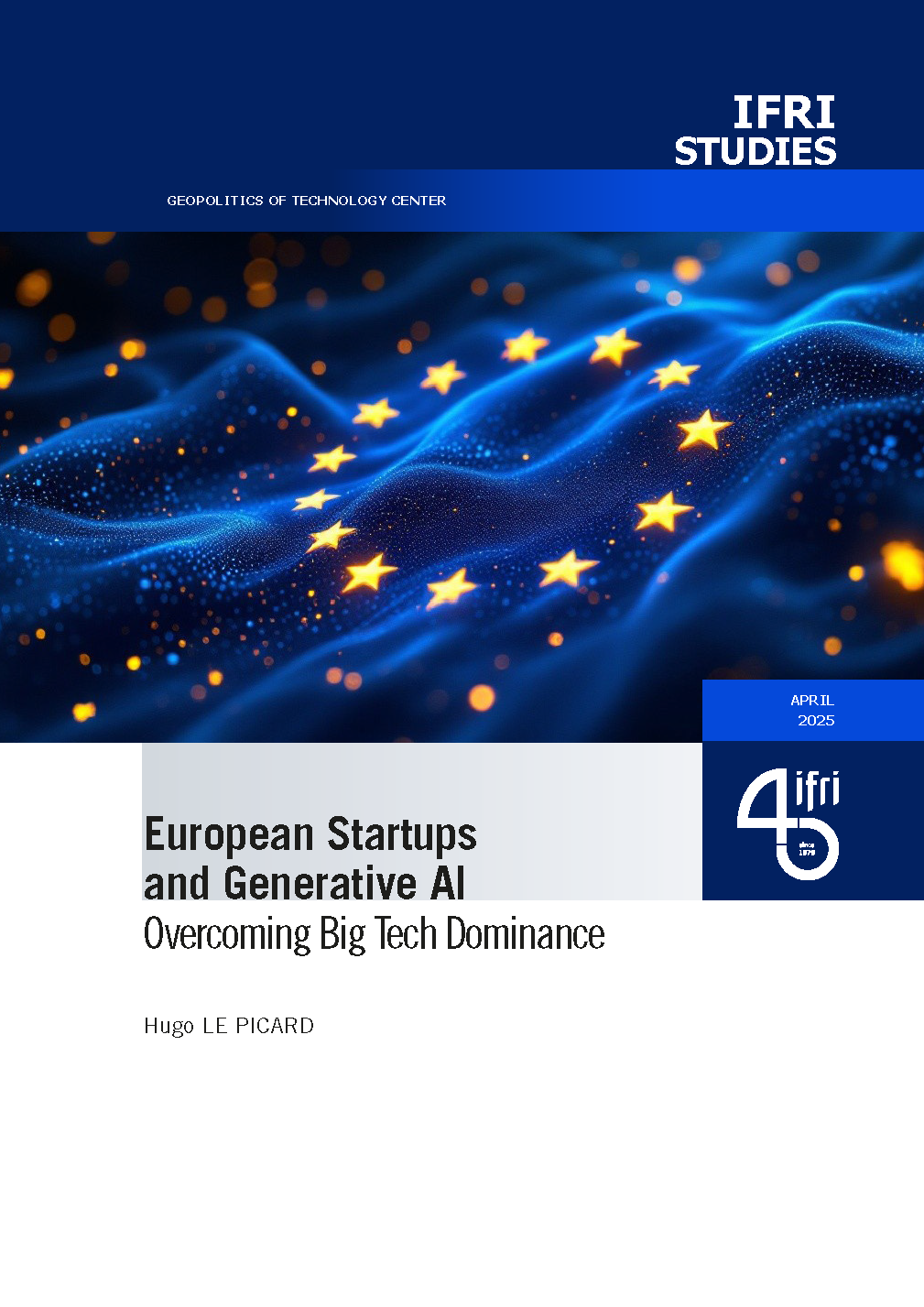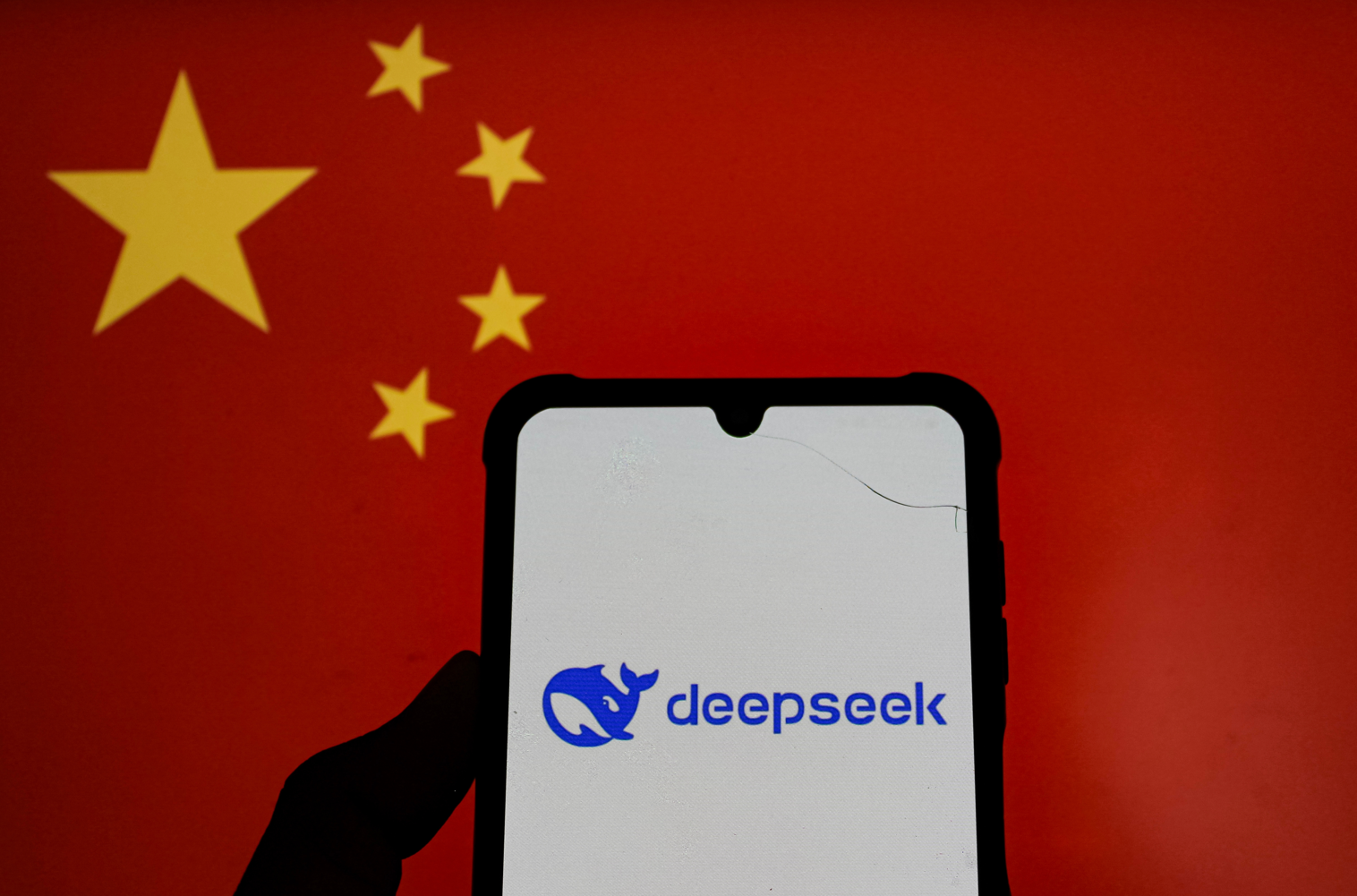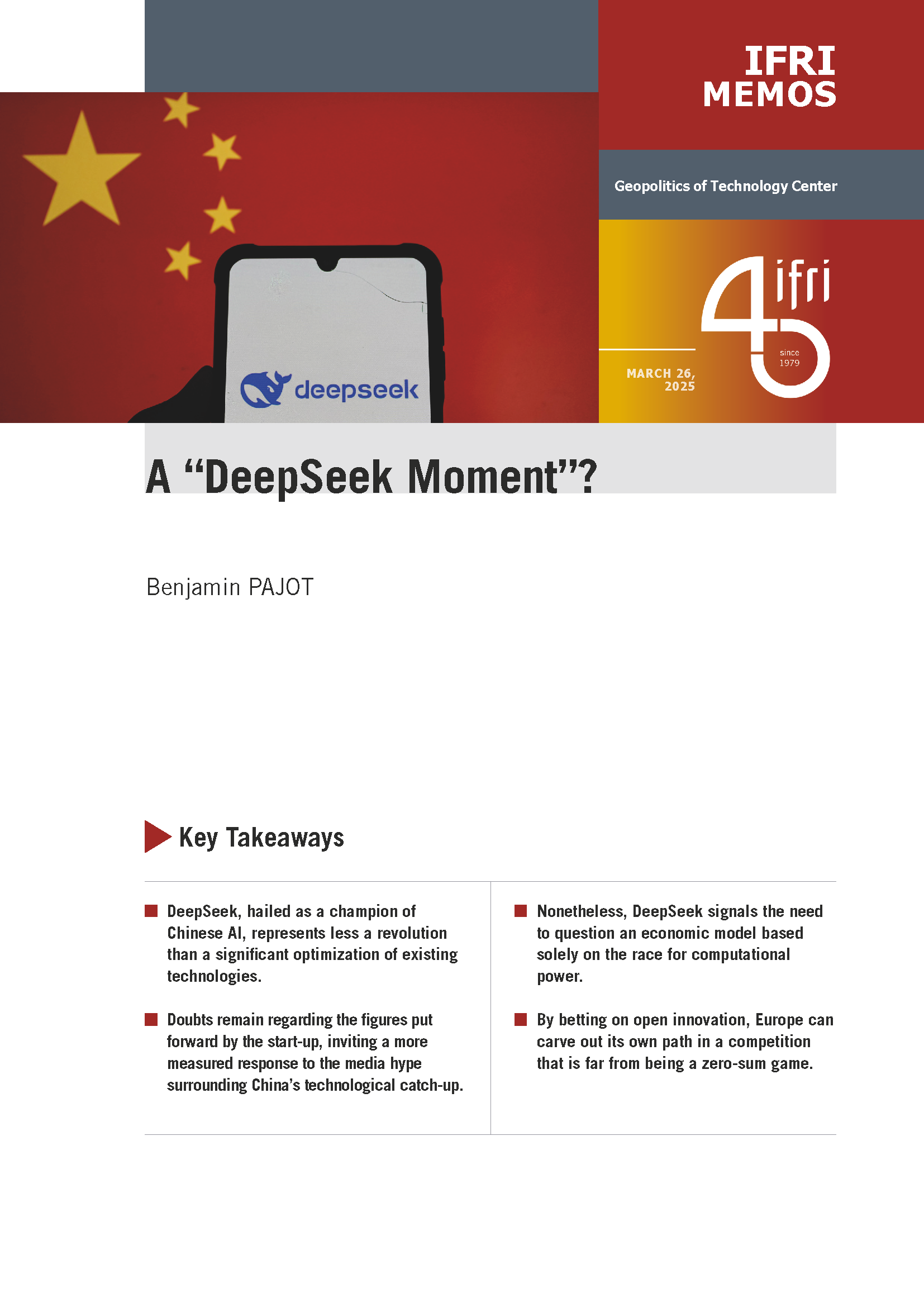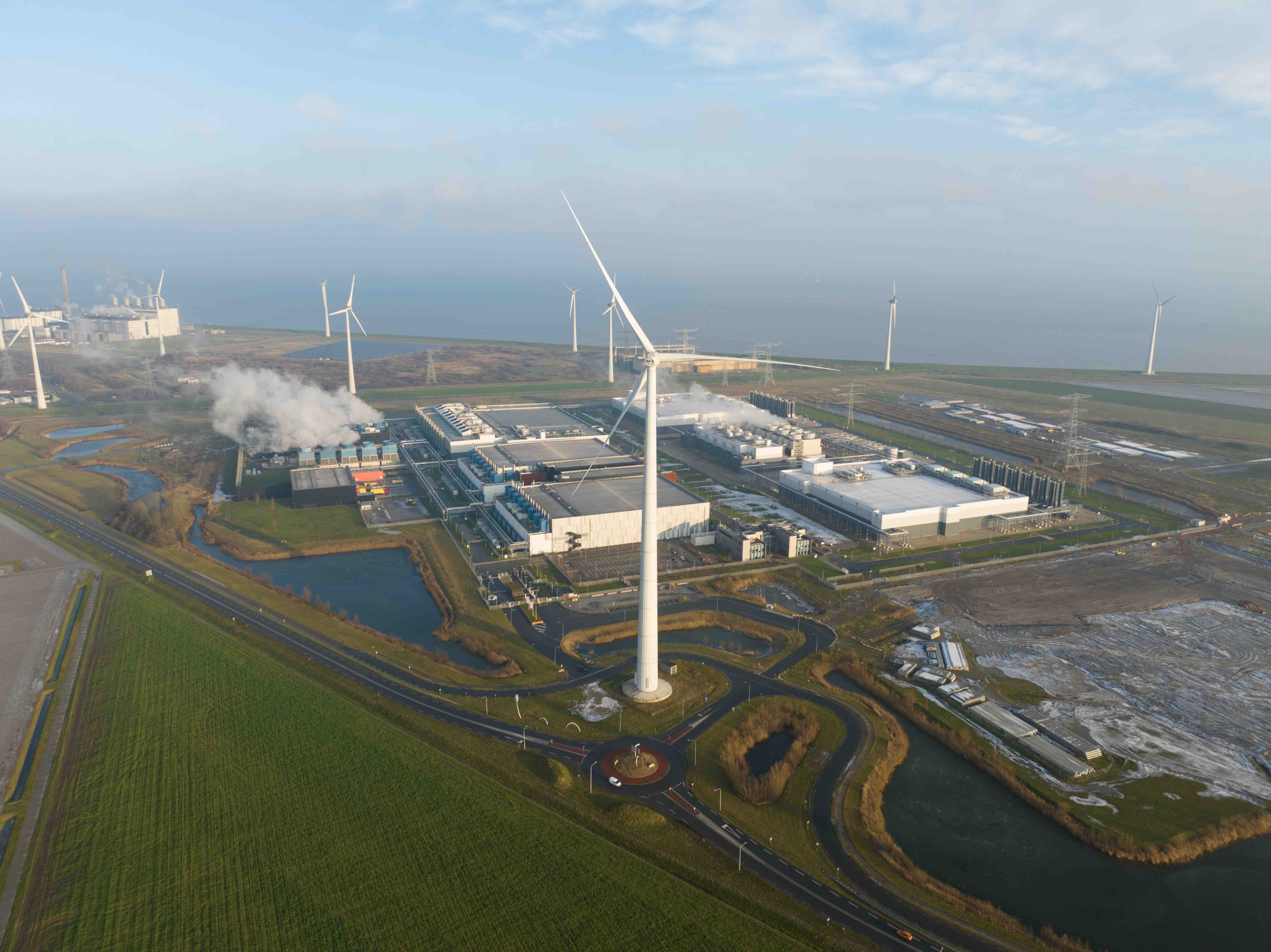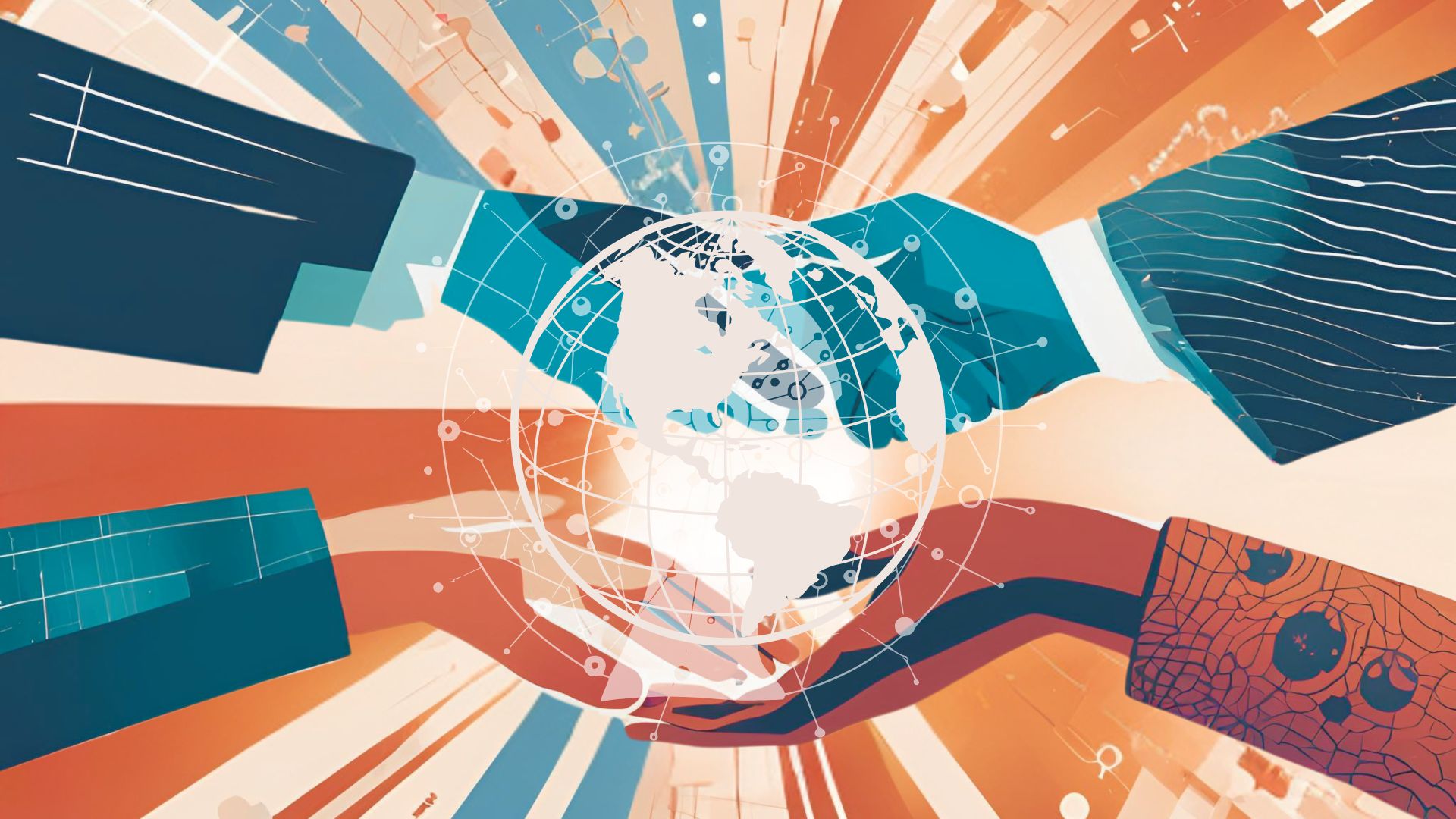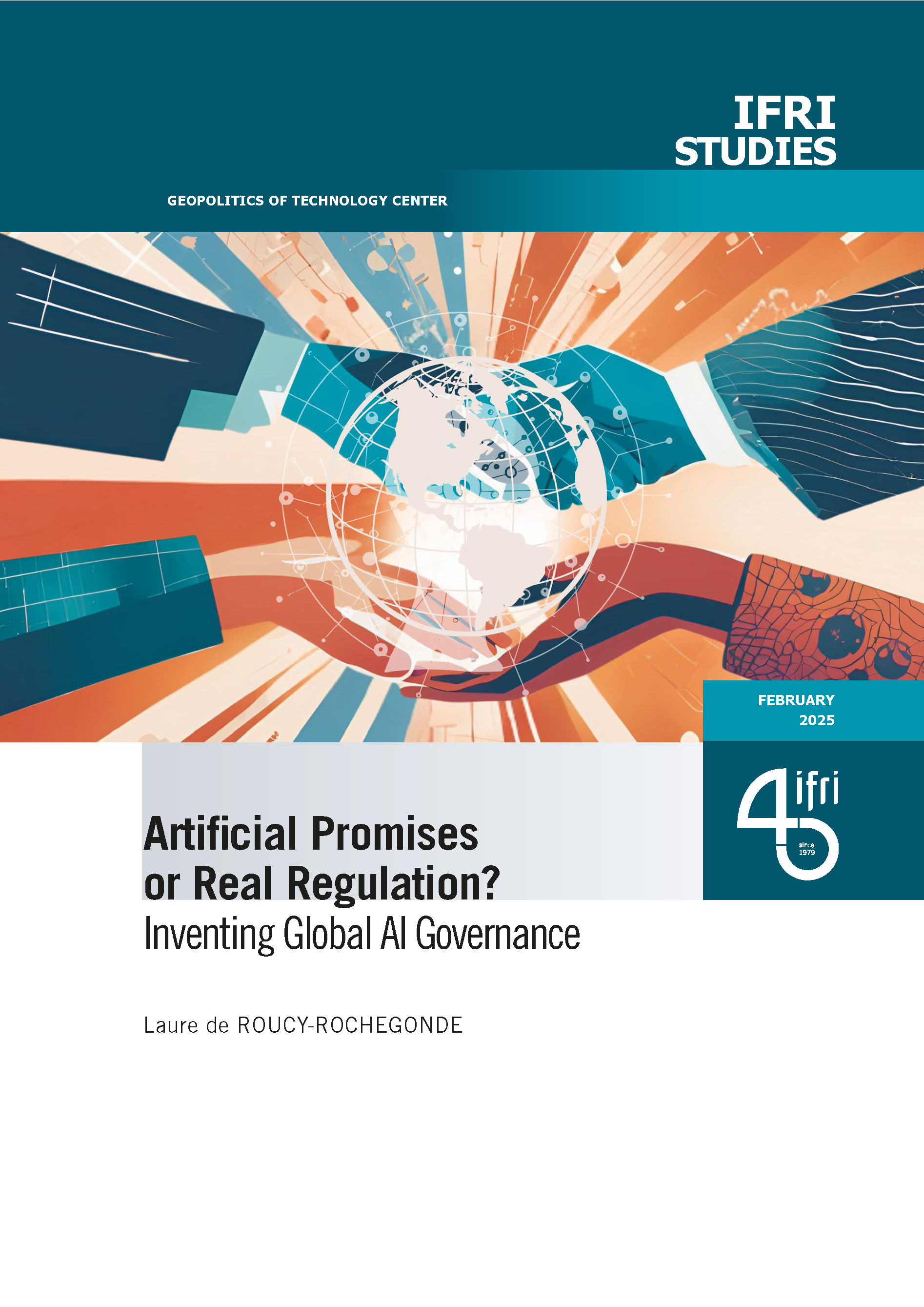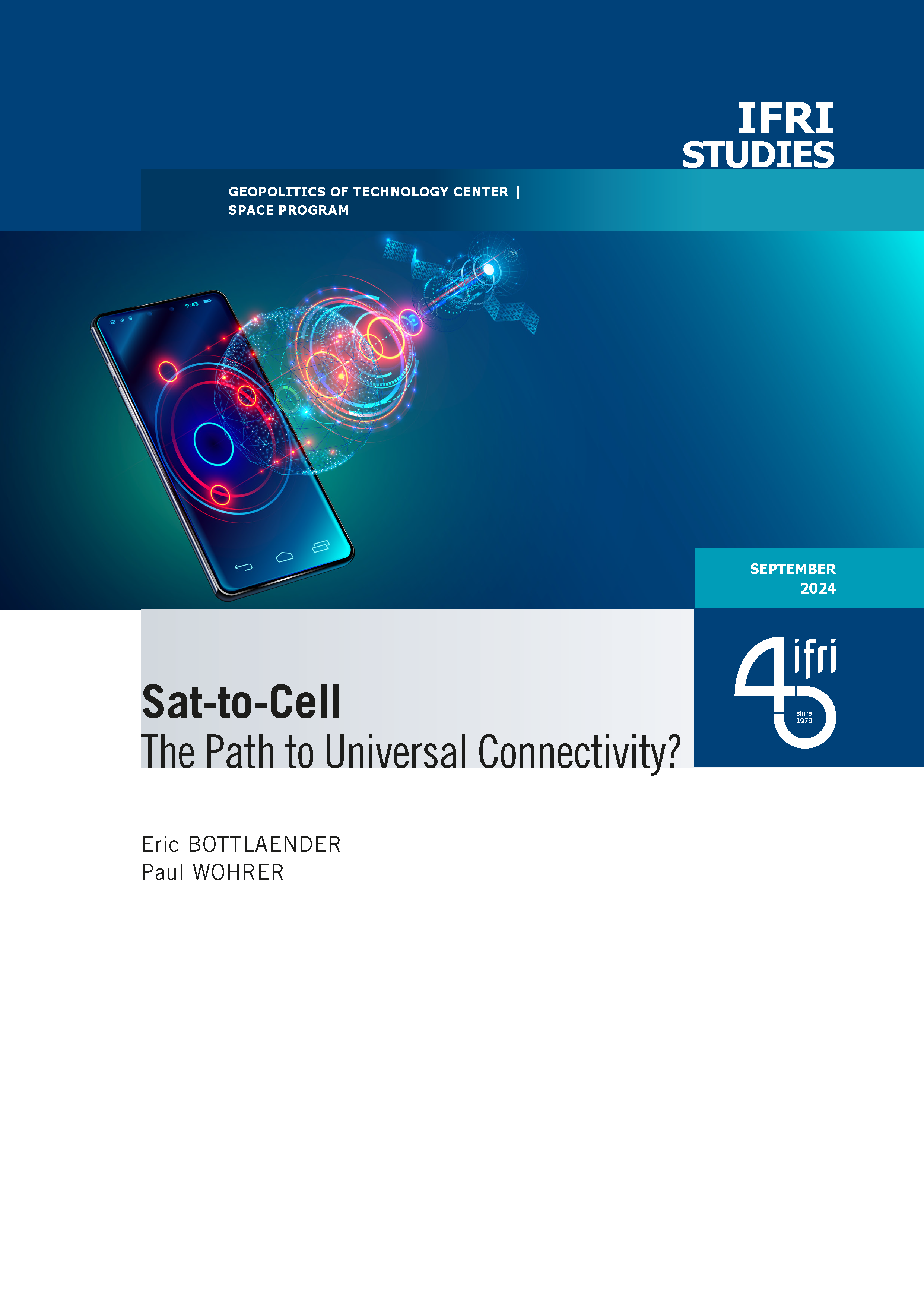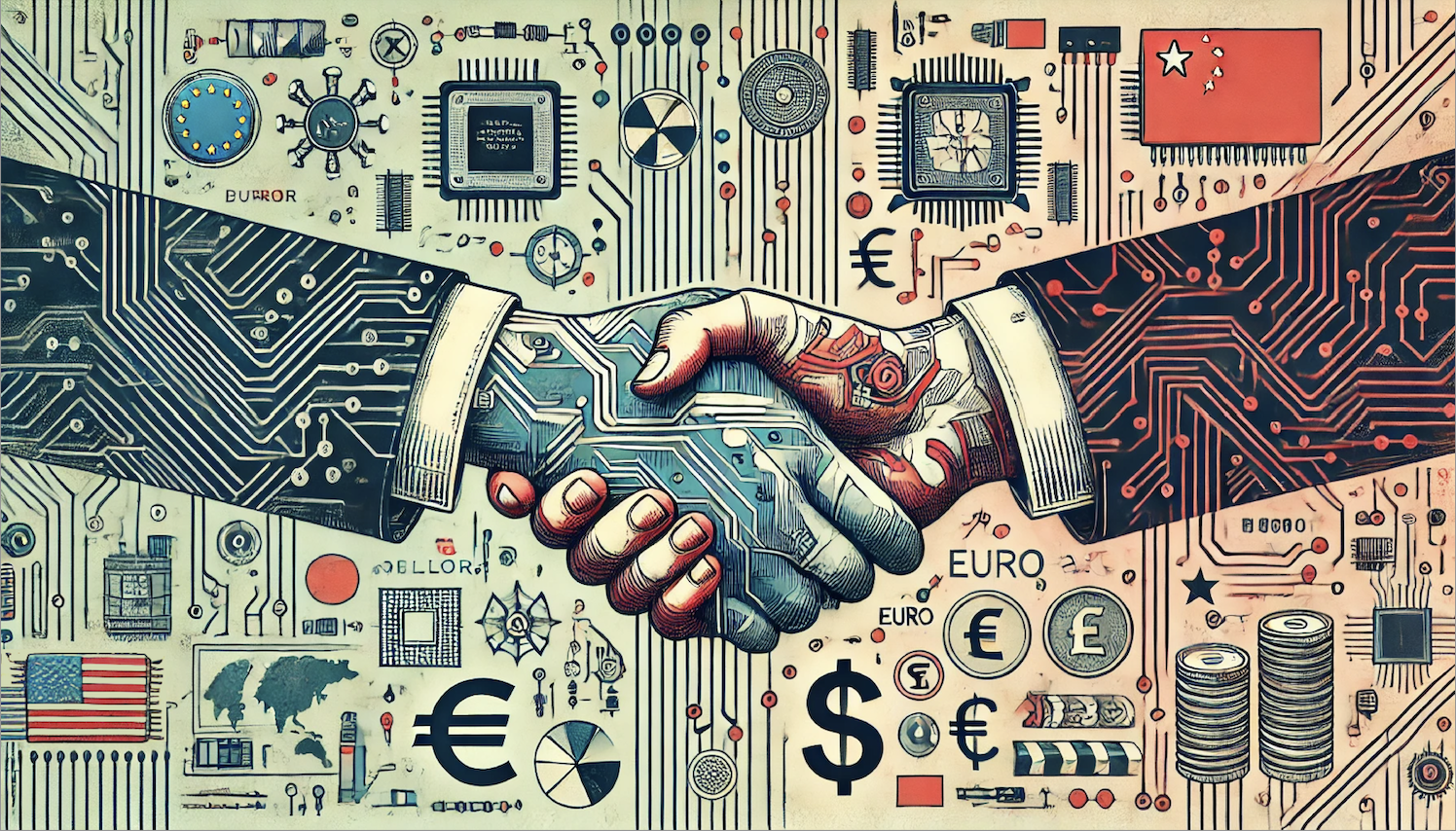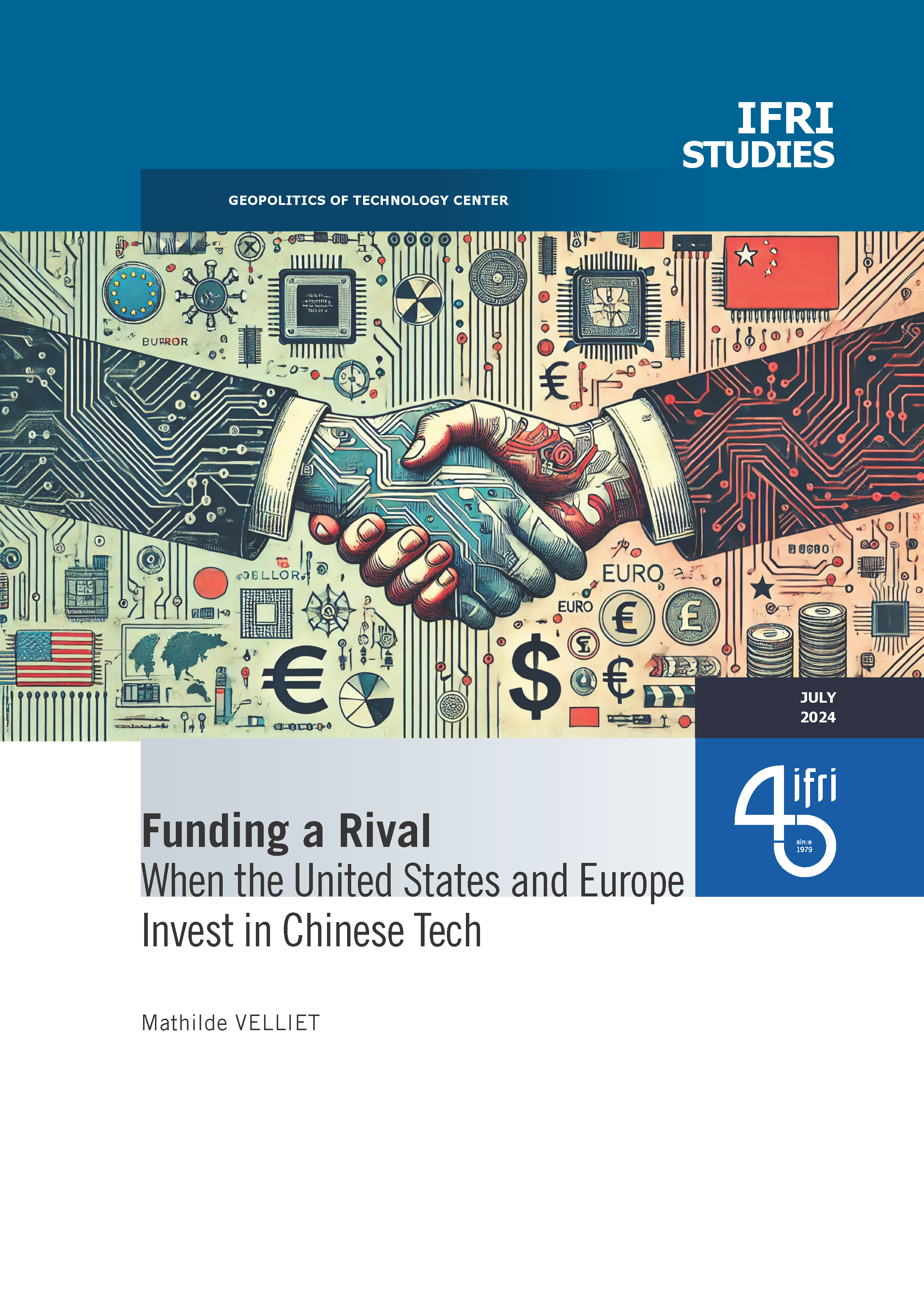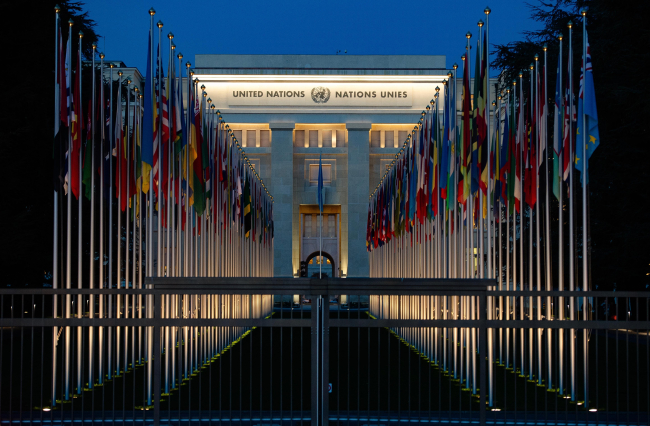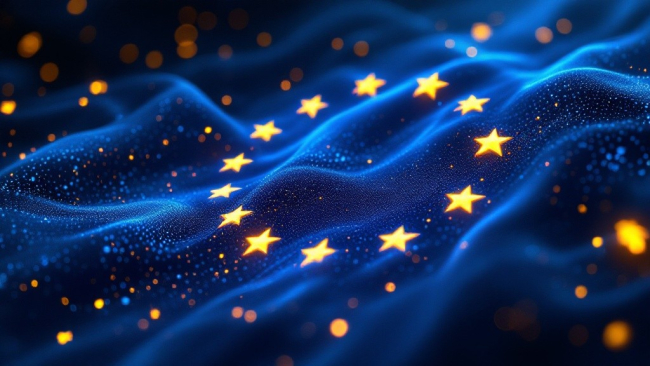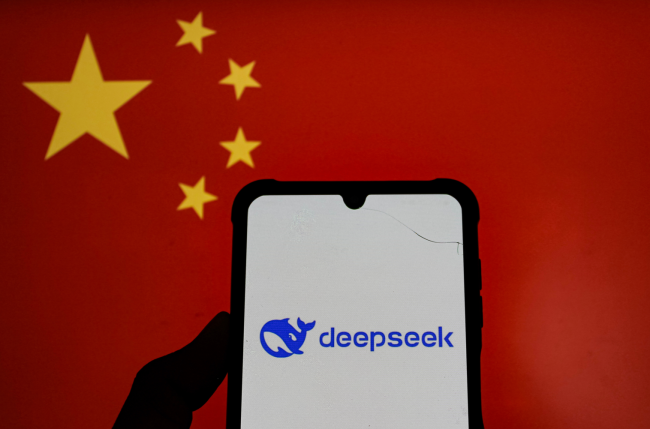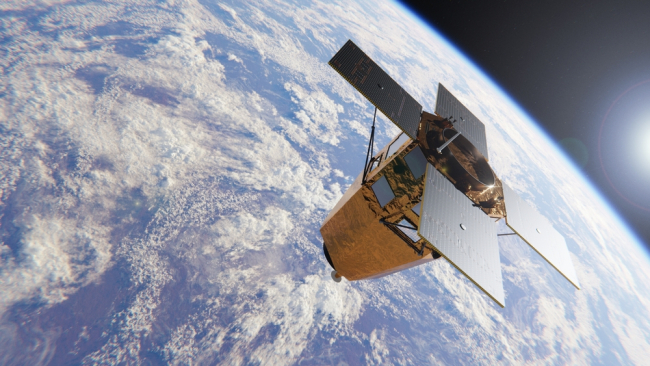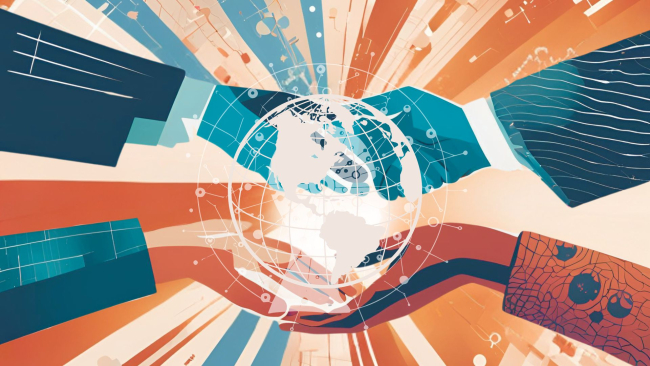Center for Geopolitics of Technology
Artificial intelligence (AI), 5G, cybersecurity, robotics, semiconductors, space…Technologies—particularly digital technologies—now profoundly affect all human activities and, by extension, international relations. The political, strategic, economic, and social stakes that arise from them are expressed across multiple political levels, involving states, international organizations, and private companies alike. International dynamics of competition and cooperation are being reshaped as a result. To address these challenges, Ifri launched its Geopolitics of Technology Center in 2020, offering a distinctly European perspective on the international issues surrounding so-called critical technologies.
Read more


Director, Center for Geopolitics of Technology, Ifri
Publications
See all our interventions
Flagship Publications
Titre Bloc Axe
Research Areas
See all our interventions
Titre Axe de recherche
European Technological Sovereignty
At a time when the global economy is being reshaped around critical technologies, the European Union is seeking to strengthen its capacity for autonomous action. This area explores European efforts to support innovation and competitiveness across the continent’s technology sectors, better manage external dependencies, enhance economic security, and ensure the resilience of value chains and infrastructures. It examines Europe’s vulnerabilities and strengths in the global technological competition—from cloud computing to semiconductors, from critical raw materials to green technologies—in order to identify the conditions for credible digital and industrial sovereignty.
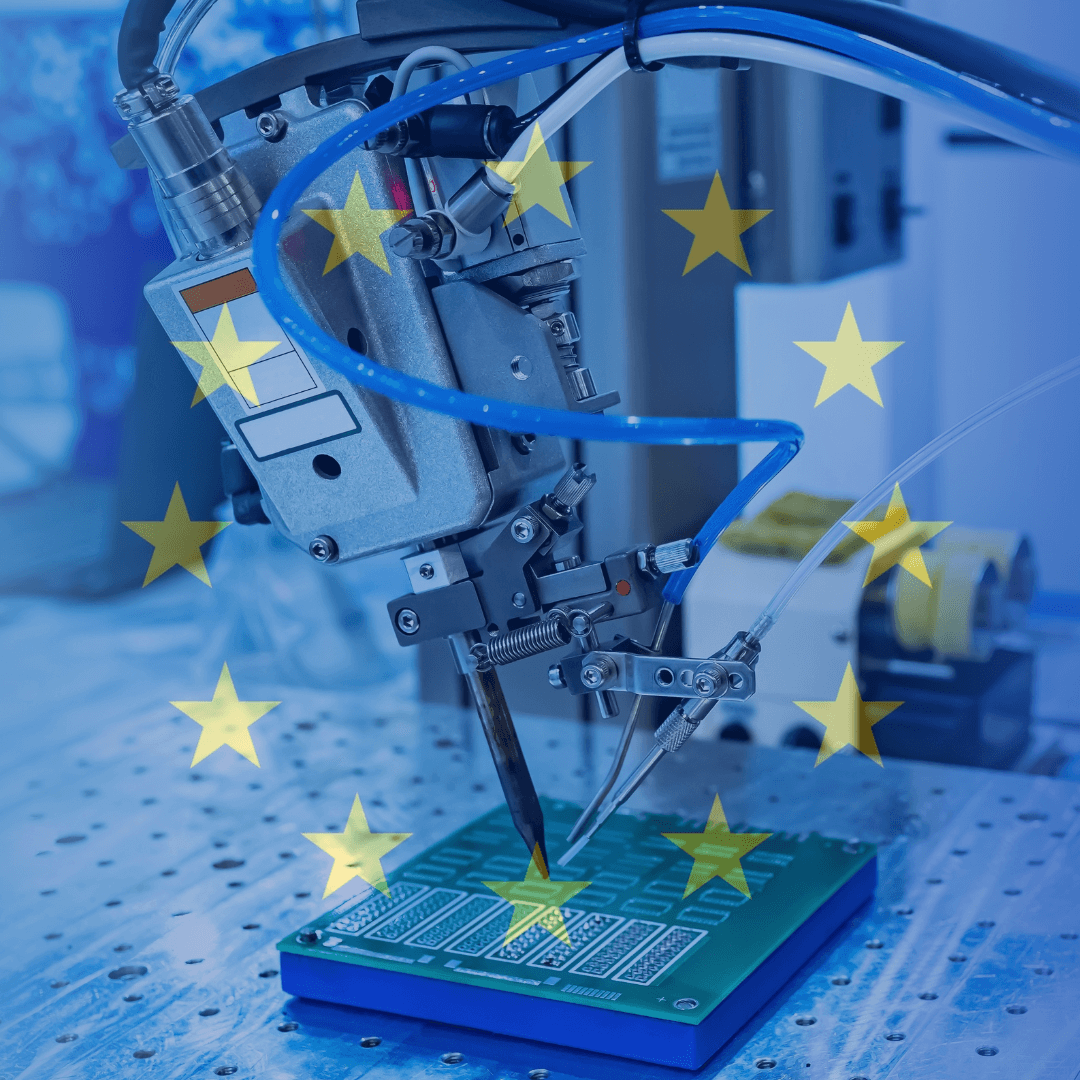
Titre Axe de recherche
Sino-American Technological Rivalry
Control over critical technologies lies at the heart of a systemic rivalry between the United States and China, one that is redefining power relations and the rules of globalization. This area analyzes the industrial and innovation policies of the two major powers, their strategies of partial decoupling, and the growing weaponization of interdependencies. It also examines U.S. diplomatic efforts to rally allies around a shared vision of economic security, and China’s response.
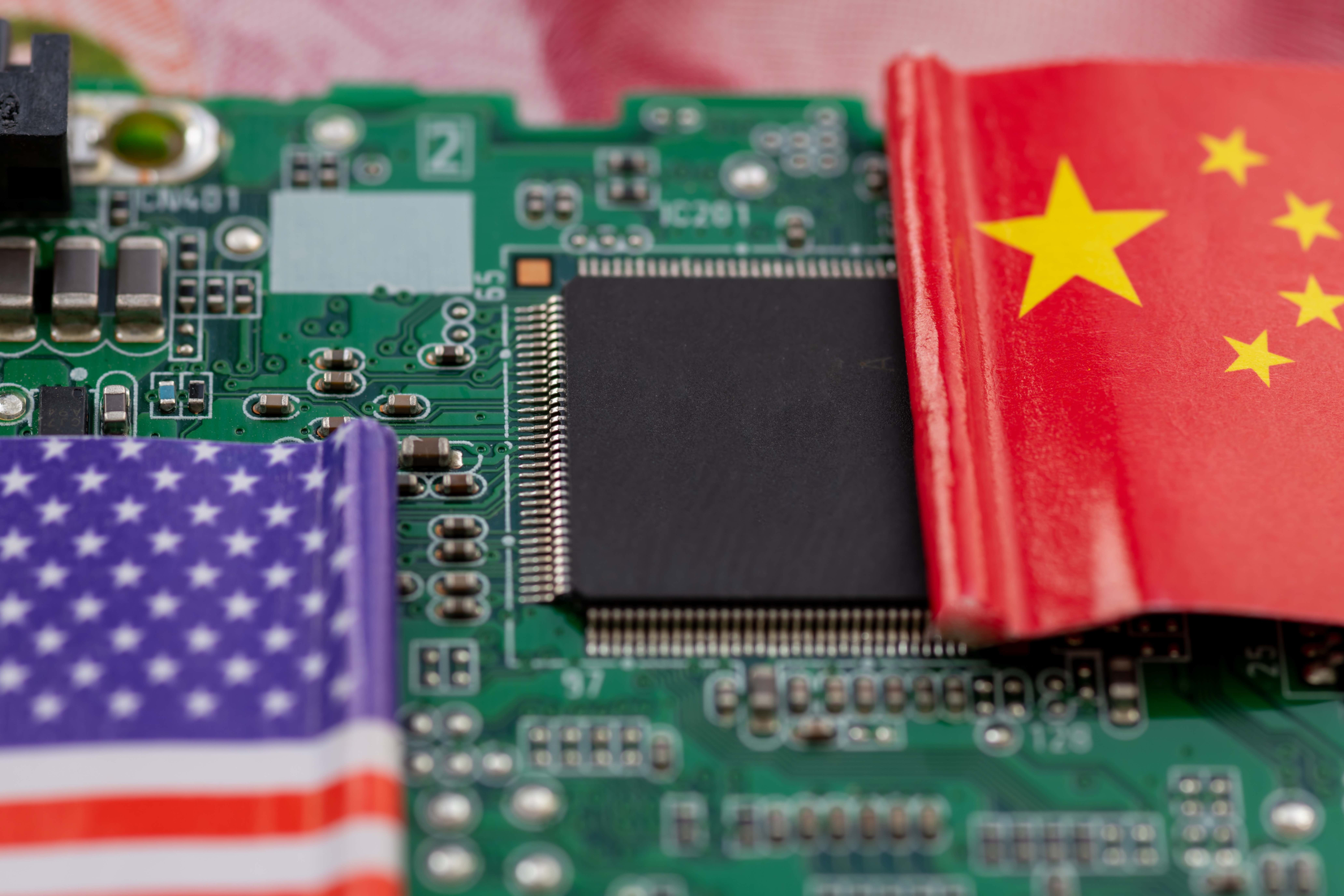
Titre Axe de recherche
Emerging Technological Powers and New Partnerships
Competition among powers for control over digital infrastructures—submarine cables, data centers, telecommunications networks—is unfolding across emerging regions, including Africa, Latin America, and the Pacific. Beyond the U.S.–EU–China triangle, this area explores the national technology strategies of actors such as India, the Gulf countries, and “digital middle powers” (Brazil, South Korea, Kenya, the United Kingdom, etc.), balancing diversification of dependencies, digital regulation, and the race for innovation.

Titre Axe de recherche
Governance and Transnational Challenges
In the face of transnational challenges (energy transition, climate change, illicit trafficking, population aging) and the new risks posed by emerging technologies, how can these technologies be used and regulated in the service of the public good without falling into techno-solutionism? This area analyzes the political, geopolitical, legal, and ethical issues associated with technology governance (digital regulation, AI governance, competition over standards).

Titre Axe de recherche
The Civil–Military Dual-Use Nature of Technology
Since the outbreak of the war in Ukraine, we have witnessed a profound transformation in the relationship between major technology companies and the defense sector. This area studies the recent intensification of the dual-use nature of technologies (AI, but also quantum, robotics, etc.), the reconfiguration of sectoral balances that this entails, and the unprecedented dynamics between traditional defense industrial and technological base actors, Silicon Valley giants, and European start-ups.
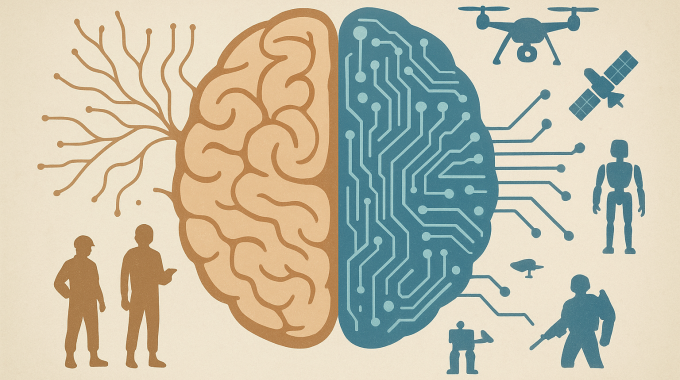
Titre Axe de recherche
Space
Once the preserve of major powers, space is now seeing the entry of an increasing number of public and private actors. It has become a new arena of strategic, economic, and normative competition. Ifri’s space program aims to analyze the power dynamics, narratives, and governance instruments shaping the international space order, while examining the roles and strategies of state and private actors. By combining political, legal, and economic analysis, it seeks to contribute to a better understanding of the challenges of sovereignty, security, and cooperation in outer space.
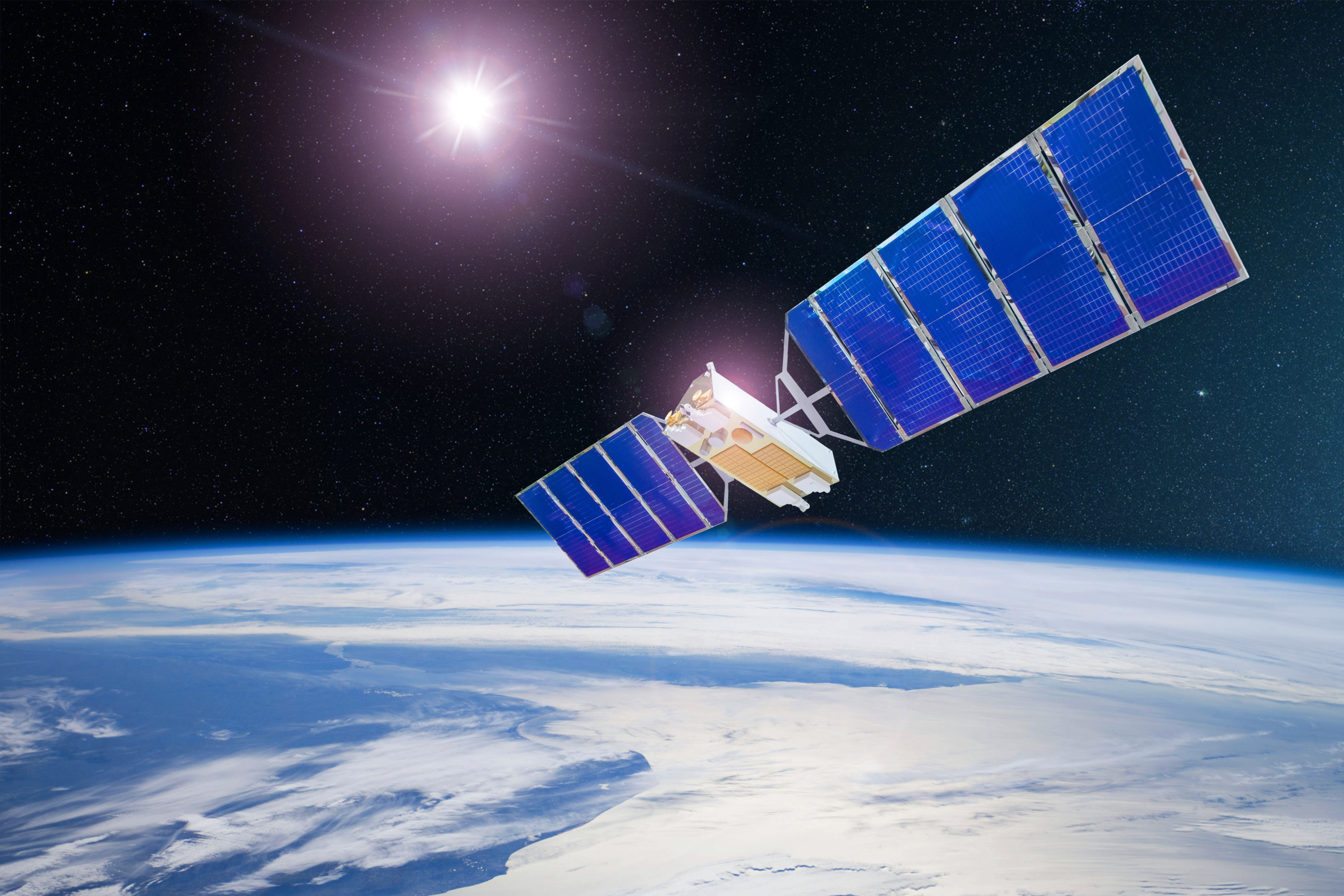
Related research programs
The Team

Our research fellows: Center for Geopolitics of Technology
Publications
Regulatory Dynamics and Tensions in the Space Sector: Towards and Americanization of Space Law?
The development of space law has gradually evolved from a top-down normative dynamic dominated by the founding impetus of the UN to a bottom-up normativity driven by national and industrial practices. This evolution is now accompanied by growing normative competition, raising the risk of an Americanization of space law and prompting the question of a European response.
The Sustainability of Space Operations: An Opportunity for European Leadership?
As space becomes a key arena for power projection strategies, while facing growth and diversification of orbital activities, the concept of “space sustainability” is emerging as a new framework of analysis for space governance.
The “Huawei Saga” in Europe Revisited: German Lessons for the Rollout of 6G
While the European Union attempted to coordinate a collective response through its 5G Toolbox in Europe’s 5G infrastructure, member states diverged significantly in balancing political, economic, and technological considerations. Germany, despite its economic ties to China and status as Europe’s largest telecom market, only reached a tentative agreement in July 2024—one that appears largely symbolic.
European Startups and Generative AI: Overcoming Big Tech Dominance
Europe is at a crossroads. Faced with the domination of American Big Tech across the entire generative Artificial Intelligence (AI) value chain, from foundation models to cloud infrastructure, distribution channels, and open source, it risks long-term technological and economic decline. Yet generative AI also represents a major opportunity for economic transformation, with a potential value estimated at 1.5 times France’s gross domestic product (GDP). To turn it into a driver of renewal, Europe must move beyond the illusion of total technological independence and instead build an ecosystem that leverages Big Tech resources while strengthening its own innovation capabilities.
A "DeepSeek Moment"?
DeepSeek, hailed as a champion of Chinese AI, represents less a revolution than a significant optimization of existing technologies. Doubts remain regarding the figures put forward by the start-up, inviting a more measured response to the media hype surrounding China’s technological catch-up. Nonetheless, DeepSeek signals the need to question an economic model based solely on the race for computational power. By betting on open innovation, Europe can carve out its own path in a competition that is far from being a zero-sum game.
The European Space Model: Renewing Ambition in a Changing Strategic Landscape
The European space model, based on science, cooperation and trade, is now being undermined by changes in international relations and the economic upheavals brought about by New Space. In light of the war in Ukraine and American disengagement, Europe needs to rethink its strategy by adding a fourth pillar dedicated to defense, in order to strengthen its sovereignty and deter possible aggression against the continent.
AI, Data Centers and Energy Demand: Reassessing and Exploring the Trends
The information and communication technologies sector today accounts for 9% of global electricity consumption, data centers for 1-1.3%, and artificial intelligence (AI) for less than 0.2%. The growing energy demands of cloud services first, and now AI workloads (10% of today’s data centers electricity demand), have exacerbated this trend. In the future, hyperscale data centers will gain shares amongst all kinds of data centers and AI will probably account for around 20% of data centers electricity demand by 2030.
Artificial Promises or Real Regulation? Inventing Global AI Governance
The risks inherent to the unregulated use of AI, a key technology and vector of profound transformations within societies underline the pressing need to harmonize governance efforts at the international level. The Summit for Action on Artificial Intelligence to be held in Paris in mid-February could be an unprecedented timely occasion to agree on a global governance framework of AI for the public good.
From nonproliferation to strategic competition: US export controls and China
Technological competition is at the heart of the renewed great-power competition that has characterized relations between the USA and China since the 2010s. The role of technological innovation in the evolution of power relations is already recognized in the literature of international relations. However, developments in US technology policy under the last two administrations raise the reverse question: how does the perception of changing power relations (in this case, Chinese technological catch-up perceived as a threat to US leadership) transform policies granting or denying access to technological innovation?
China’s Mature Node Overcapacity: Unfounded Fears
China is decoupling from, not flooding, the global mature-node semiconductor market. As China increasingly pursues industrial policies encouraging domestic chip production, its own growing chip demand will prevent a direct flood of cheap Chinese chips on foreign shores. However, as Beijing achieves its goal of decreasing the reliance of domestic downstream manufacturers on foreign chips, European and American mature-node semiconductor companies will feel the ripple effects of an increasingly “involuted” Chinese chip ecosystem.
Support independent French research
Ifri, a foundation recognized as being of public utility, relies largely on private donors – companies and individuals – to guarantee its sustainability and intellectual independence. Through their funding, donors help maintain the Institute's position among the world's leading think tanks. By benefiting from an internationally recognized network and expertise, donors refine their understanding of geopolitical risk and its consequences on global politics and the economy. In 2025, Ifri supports more than 80 French and foreign companies and organizations.








